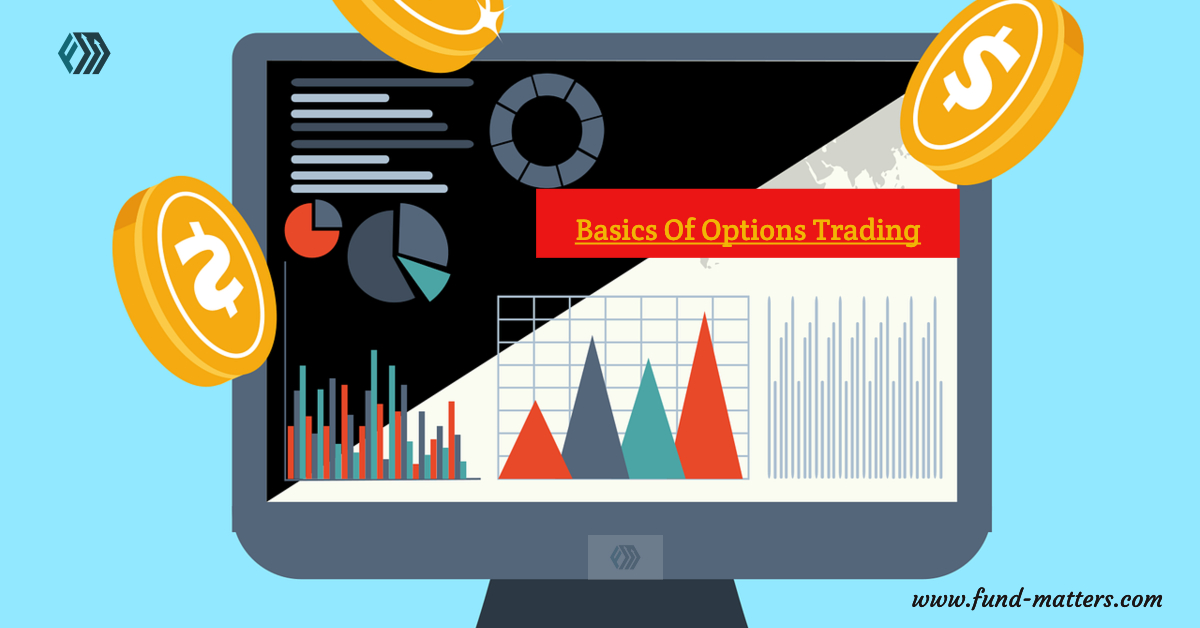Basics Of Options Trading


We have seen a rapid growth in trading activities of option segment in Indian Derivatives market in the last few years. Option segment has become more popular nowadays, because of its own profile and that sounds exactly similar to the popularity of IPL T-20 matches as compared to 50 Overs or Test series matches. Trading activities are rapidly rising in this segment because it offers the opportunity to take the benefit of all kind of market sentiment whether it is bullish, bearish, range bound or highly volatile.
An option is a contract that allows (but doesn’t require) an investor to buy or sell an underlying instrument like a stock, ETF or index at a certain price over a certain period of time. Buying an option that allows you to buy shares at a later date is called a “call option,” whereas buying an option that allows you to sell shares at a later date is called a “put option.”
The price at which you agree to buy the underlying security via the option is called the “strike price,” and the fee you pay for buying that option contract is called the “premium.” When determining the strike price, you are betting that the asset (typically a stock) will go up or down in price. The price you are paying for that bet is the premium, which is a percentage of the value of that asset.
The seller of an options contract is called the ‘options writer’. Unlike the buyer in an options contract, the seller has no rights and must sell the assets at the agreed price if the buyer chooses to execute the options contract on or before the agreed date.
Options can be used for:
- Leverage/Speculation: Options help you profit from changes in share prices without putting down the full price of the share. You get control over the shares without buying them outright.
- Hedging: They can also be used to protect yourself from fluctuations in the price of a share and letting you buy or sell the shares at a pre-determined price for a specified period of time. One of the integral parts of hedging yourself against market fluctuations is to do financial planning.
Options trading is complex
Though they have their advantages, trading in options is more complex than trading in regular shares. It calls for a good understanding of trading and investment practices as well as constant monitoring of market fluctuations to protect against losses.
Call option
The ‘Call Option’ gives the holder of the option the right to buy a particular asset at the strike price on or before the expiration date in return for a premium paid upfront to the seller. Call options usually become more valuable if the value of the underlying asset increases.
Put Option
The Put Option gives the holder the right to sell a particular asset at the strike price anytime on or before the expiration date in return for a premium paid up front. Since you can sell a stock at any given point of time, if the spot price of a stock falls during the contract period, the holder is protected from this fall in price by the strike price that is pre-set. This explains why put options become more valuable when the price of the underlying stock falls.
Expiration Date
A future date on or before which the options contract can be executed. Options contracts have three different durations you can pick from:
- Near month (1 month)
- Middle Month (2 months)
- Far Month (3 months)
Lot Size
Lot size refers to a fixed number of units of the underlying asset that form part of a single options contract. The standard lot size is different for each stock and is decided by the exchange on which the stock is traded.
Time Value
Time Value basically puts a premium on the time left to exercise an options contract. This means if the time left between the current date and the expiration date of Contract A is longer than that of Contract B, Contract A has higher Time Value.
This is because contracts with longer expiration periods give the holder more flexibility on when to exercise their option. This longer time window lowers the risk for the contract holder and prevents them from landing in a tight spot.
At the beginning of a contract period, the time value of the contract is high.
Open Interest
Open Interest refers to the total number of outstanding positions on a particular options contract across all participants in the market at any given point of time.



